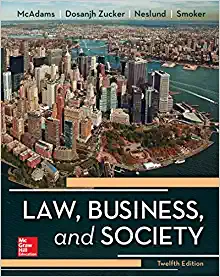Question
Costs that differ between alternatives are: relevant to the decision not relevant to the decision sunk costs opportunity costs Flag this Question Question 2 4pts
Costs that differ between alternatives are:
relevant to the decision
not relevant to the decision
sunk costs
opportunity costs
Flag this Question
Question 2
4pts
A cost that was incurred in the past and cannot be changed regardless of future decisions is:
relevant to the decision
material to the decision
a sunk cost
an opportunity cost
Flag this Question
Question 3
4pts
What would aprice taker emphasize?
cost-plus pricing
target pricing
market pricing
retail pricing
Flag this Question
Question 4
4pts
Our company is a price taker and has the following information available for the current year:
- budgeted production, 200,000 units;
- desired operating income as a percentage of total assets, 15%;
- current market price of our product, $50 per unit; and
- total assets, $12,000,000.
What is our company'sdesired profitfor the year?
$1,500,000
$1,800,000
$8,200,000
$12,000,000
Flag this Question
Question 5
4pts
Our company is a price setter and has the following information available for the current year:
- budgeted sales volume, 200,000 units;
- desired operating income as a percentage of total assets, 16%;
- variable costs, $25 per unit;
- fixed costs, $4,000,000; and
- total assets, $12,000,000.
What is oursales price per unitif we used thecost-plus pricingapproach?
$49.60
$51.91
$54.60
$50.20
Flag this Question
Question 6
8pts
Our company manufactures and sells calculators for $90 each. A major University has offered us $70 per calculator for a one-time order of 500 calculators.
Our costs to manufacture a calculator include:
- direct materials, $25 per unit;
- direct labor, $20 per unit;
- variable factory overhead, $15 per unit; and
- fixed manufacturing overhead, $12 per unit.
Assume that we have excess capacity and the special order will not affect regular sales.
What is the change in operating income that would result from accepting this special sales order?
[ Select ]
["
increase of $5,000
", "
decrease of $5,000
", "
increase of $2,000
", "
decrease of $2,000
"]
Should we accept the special order?
[ Select ]
["
accept the order
", "
reject the order
"]
Flag this Question
Question 7
4pts
Our company manufactures and sells seven different products to different markets.Financial data for product x2 is as follows:
- revenue, $12,000;
- variable expenses, $12,500; and
- fixed expenses $1,000.
We can eliminate all of the fixed expenses related to x2 if the product is dropped, and there will be no adverse effect on sales of other products. What is the effect of dropping this product on the operating income of the company?
Operating income will increase by $500.
Operating income will decrease by $500.
Operating income will decrease by $1,500.
Operating income will increase by $1,500.
Flag this Question
Question 8
4pts
Our company manufactures a component used in the production of its products. Our costs to manufacture the part include
- direct materials, $25 per unit;
- direct labor, $20 per unit;
- variable factory overhead, $15 per unit;and
- fixed manufacturing overhead, $12 per unit.
A supplier has offered to sell us the part for $65 per unit. If ourcompany chooses to outsource, the fixed costs could be reduced by 55%. We would have no other use for the facilities currently employed in making the component. What would be the effect if ourcompany decides to outsource?
The effect on operating income is $0.
We would save $1.60 per unit.
Costs would increase by $1.60 per unit.
We would save $0.40 per unit.
Flag this Question
Question 9
4pts
Our company produces a product that is currently sold for $50 per unit. We are considering processing it further into an upgraded version of the current product. If we do so,we can sell the product for $60,we will incur additional costs of $75,000, andwe can sell 8,000 units.
Which of the following is true?
Sell now at $50 since doing so will maximize operating income.
Process further because operating income will increase by $5,000.
Process further because operating income will increase by $7,500.
Process further because operating income will increase by $8,000.
Step by Step Solution
There are 3 Steps involved in it
Step: 1

Get Instant Access to Expert-Tailored Solutions
See step-by-step solutions with expert insights and AI powered tools for academic success
Step: 2

Step: 3

Ace Your Homework with AI
Get the answers you need in no time with our AI-driven, step-by-step assistance
Get Started


